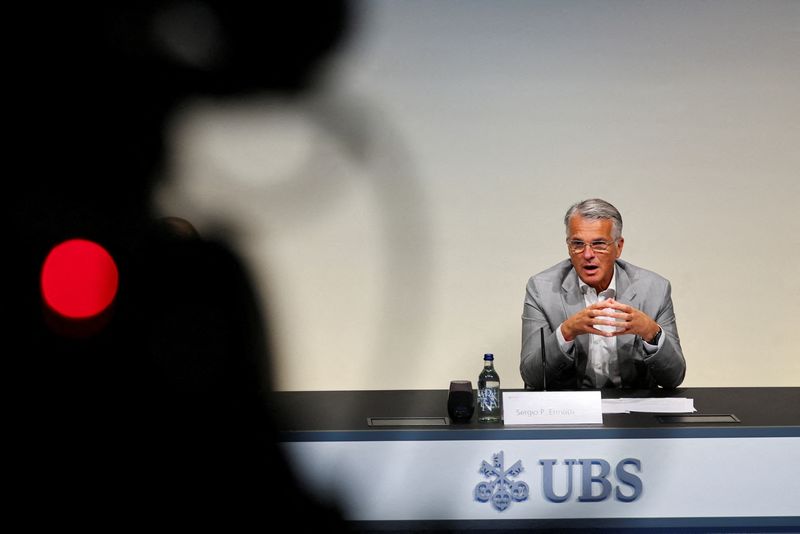ZURICH (Reuters) - The chief executive of Swiss bank UBS chastised European regulators for letting the United States get ahead in banking since the financial crisis, amid continuing debate over the future of global mega banks.
Since the 2007-2009 crisis, U.S. regulators clearly indicated they wanted U.S. banks "to be the leading force going forward in the financial services industry, so they allowed them to grow," UBS CEO Sergio Ermotti said in the podcast hosted by Nicolai Tangen, CEO of Norges Bank Investment Management.
"Europe did the contrary. Europe did everything they could have done to not allow banks to be bigger or successful," Ermotti said in the interview published on Wednesday.
The fragmentation of Europe from a regulatory and political standpoint "without a capital market union, without a banking union, has prevented the creation of strong and alternative players," the 63-year-old Ermotti argued.
The financial crisis led to a slew of bailouts and mergers in European banking but in the aftermath, many of the best-known lenders have struggled to match the performance of U.S. peers.
'PAROCHIAL THINKING IN EUROPE'
"There is a political desire to not allow banks to become too big, still a lot of parochial thinking in Europe about big banks," Ermotti said. "Each wants to have their own national champions, forgetting that winning the national championships doesn't take you very far (globally)."
Ermotti is now overseeing the 2023 UBS takeover of its stricken Swiss rival Credit Suisse (SIX:CSGN), which has renewed debate about how to police banks deemed "too big to fail."
Now in his second term at the helm of UBS, Ermotti was asked about the task of appointing his successor.
"One has to be realistic nowadays, to have more than two or three credible candidates is not easy," he said, noting UBS's board wanted him to stay on at a "very minimum" until the end of 2026 or early 2027.
Asked what advice he had for younger listeners, Ermotti urged them to be passionate, flexible and mobile about work.

"I never really did anything because I wanted to be a CEO...you must be quite sick if you think early on in your career - I want to be a CEO," he said.
"Maybe it's a dream, but very few people make it, so you need to work and enjoy what you do, and be successful, and over time maybe a career comes."